14 Best Foods for Improving Digestion and Gut Health
Maintaining a healthy digestive system is key to overall well-being. The right foods can support gut health, improve digestion, and enhance nutrient absorption. Incorporating natural, nutrient-rich foods into your diet can help reduce bloating, boost energy, and promote a balanced gut microbiome. Simple dietary changes can make a big difference in how your digestive system functions daily.
This post may contain affiliate links, which helps keep this content free. Please read our disclosure for more info.
Yogurt

Yogurt is rich in probiotics, which are beneficial bacteria that promote a healthy gut microbiome. These probiotics can improve the balance of gut flora, support the immune system, and aid in the breakdown of food. The live cultures in yogurt help break down lactose, making it easier to digest for those who are lactose intolerant. Additionally, yogurt provides calcium and other nutrients that are important for overall gut health.
Including yogurt in your diet can enhance the gut’s ability to process nutrients and eliminate waste. It can also reduce inflammation in the gut, improving digestive conditions such as irritable bowel syndrome (IBS). For maximum benefit, choose plain, unsweetened yogurt that contains live and active cultures.
Kefir
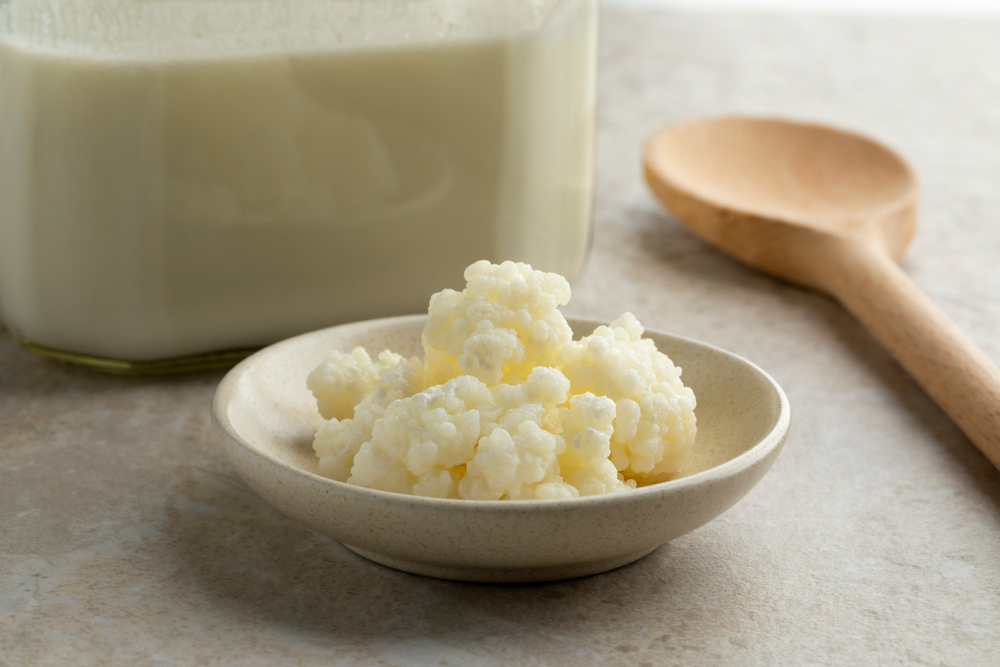
Kefir is a fermented dairy product similar to yogurt, but it contains a wider variety of probiotic strains. These probiotics support gut health by enhancing the growth of beneficial bacteria and preventing harmful bacteria from taking over. Kefir is also rich in protein, calcium, and B vitamins, all of which are essential for digestive function.
The fermentation process of kefir helps break down nutrients into easier-to-absorb forms, making it a gentle option for those with sensitive digestive systems. Regular consumption of kefir can improve digestion by supporting healthy gut flora and strengthening the intestinal lining.
Ginger

Ginger has been used for centuries to alleviate digestive issues such as nausea, bloating, and indigestion. It contains compounds like gingerol, which have anti-inflammatory and antioxidant properties. These compounds can stimulate the production of digestive enzymes, which improve the breakdown of food in the stomach.
Ginger can also help relieve gas and bloating by relaxing the muscles in the gastrointestinal tract. It supports overall digestion by enhancing the body’s ability to process food more efficiently. Including fresh ginger or ginger tea in your daily routine can help maintain a healthy digestive system.
Bananas
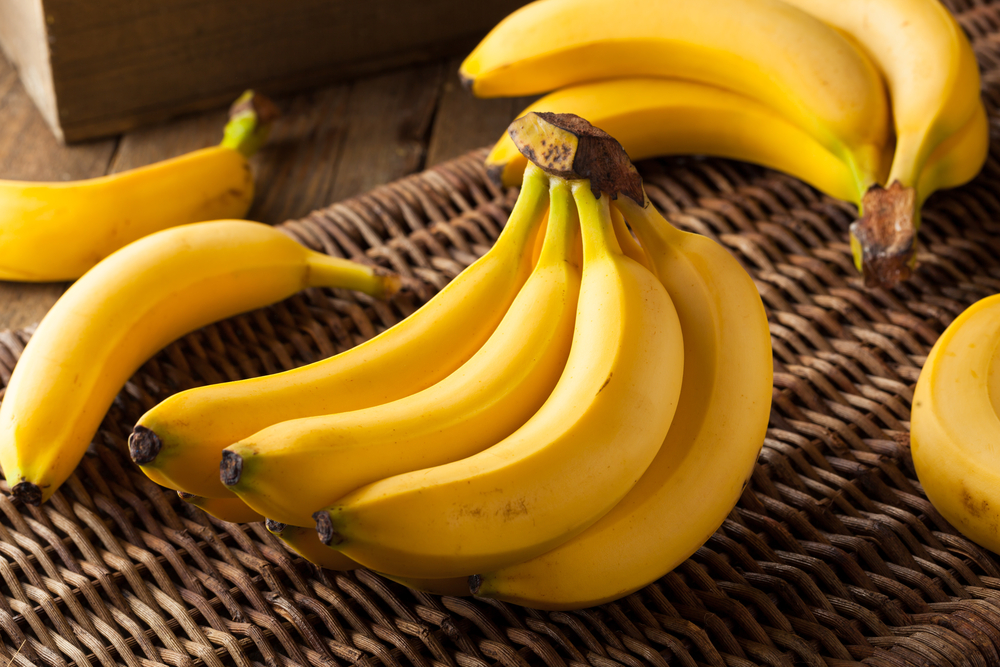
Bananas are a great source of soluble fiber, particularly pectin, which helps regulate the digestive system. The fiber in bananas absorbs water and helps form stool, making them an excellent food for managing diarrhea or constipation. Bananas also contain prebiotics, which nourish the good bacteria in your gut, further supporting a healthy microbiome.
In addition, bananas are easy to digest, making them a gentle option for those with digestive discomfort. They help protect the stomach lining and can reduce acid reflux symptoms, making them a go-to food for digestive support.
Leafy Greens
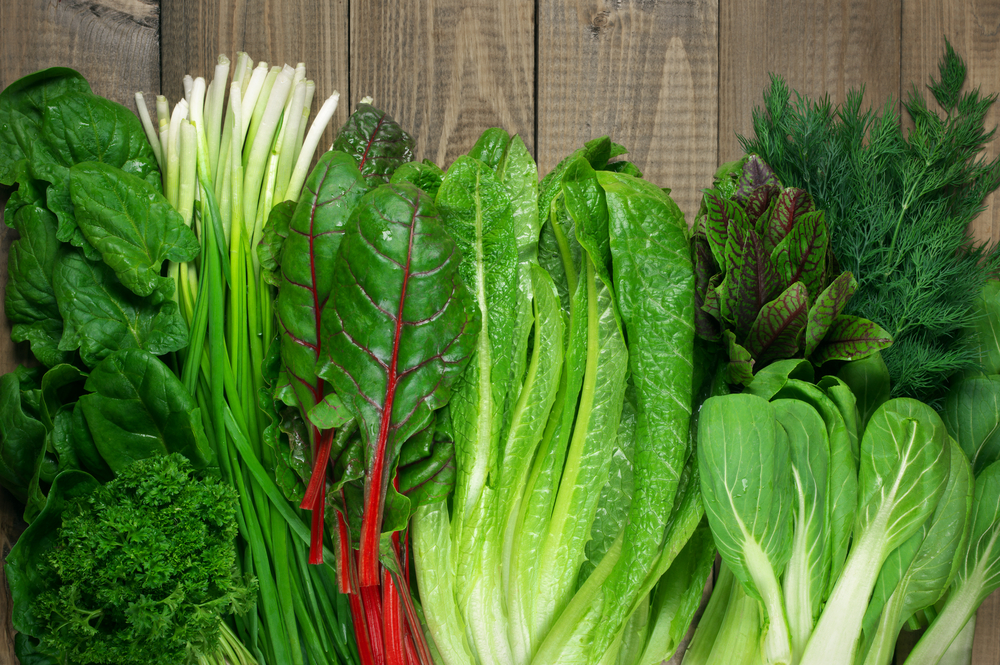
Leafy greens such as spinach, kale, and Swiss chard are high in fiber, which promotes regular bowel movements and supports overall gut health. The fiber content helps to keep food moving smoothly through the digestive tract, preventing constipation. These greens are also rich in antioxidants, which help reduce inflammation in the gut.
Leafy greens are also packed with vitamins and minerals that support digestive enzymes and the overall function of the gastrointestinal system. The magnesium found in many leafy greens helps relax the muscles of the digestive tract, which can ease digestive discomfort.
Apple Cider Vinegar

Apple cider vinegar (ACV) is known for its potential to aid digestion by increasing stomach acid levels. This can help break down food more effectively, particularly proteins, and enhance the absorption of nutrients. The acetic acid in ACV can also help balance stomach pH and promote the growth of beneficial gut bacteria.
ACV can help alleviate symptoms of indigestion and bloating by stimulating the production of digestive enzymes. When diluted in water, it is a natural remedy to enhance digestion and may even help with weight management by supporting metabolism.
Garlic
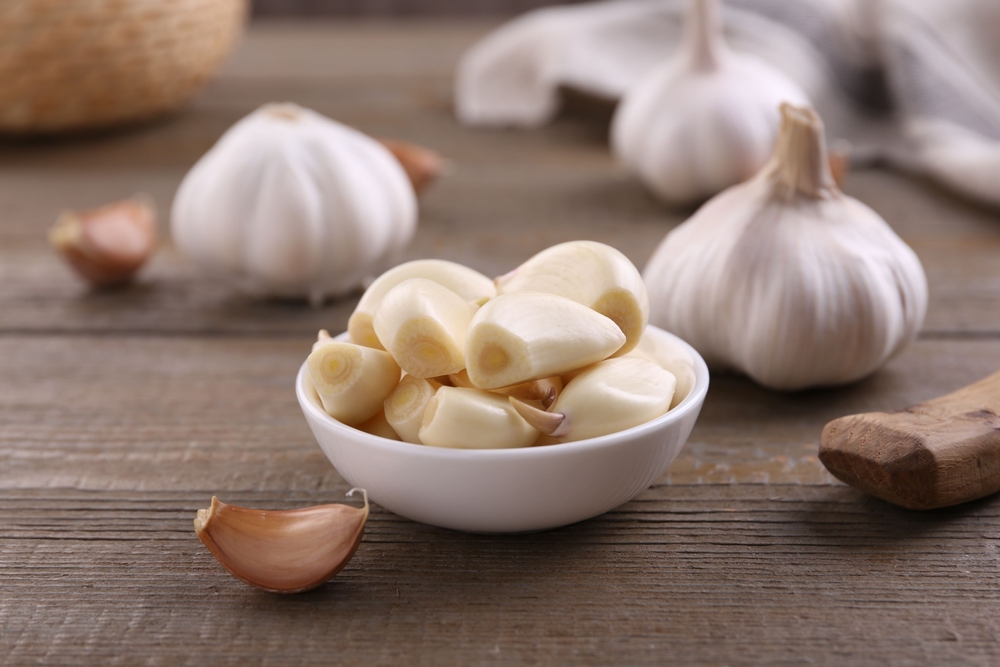
Garlic contains prebiotic fibers that promote the growth of healthy gut bacteria, helping to maintain a balanced microbiome. It also has antimicrobial properties, which can support gut health by helping to control harmful bacteria and fungi in the digestive tract. Additionally, garlic is rich in allicin, which can reduce inflammation in the gut and improve digestive efficiency.
Incorporating raw or cooked garlic into your meals can help improve digestion, enhance the absorption of nutrients, and support immune function. It may also relieve symptoms of bloating and gas by promoting the breakdown of food.
Chia Seeds
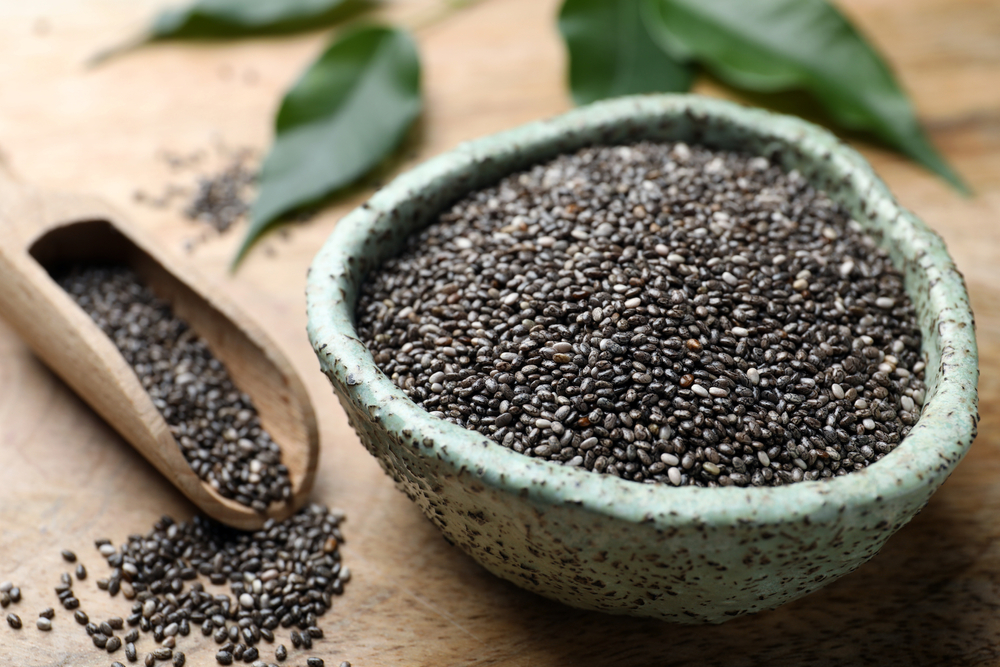
Chia seeds are an excellent source of fiber, omega-3 fatty acids, and antioxidants. The high fiber content in chia seeds helps to support digestive health by promoting regular bowel movements and easing constipation. Additionally, the soluble fiber in chia seeds absorbs water and forms a gel-like substance in the stomach, which can improve gut motility and reduce bloating.
These seeds also act as a prebiotic, supporting the growth of beneficial bacteria in the gut. By incorporating chia seeds into smoothies or overnight oats, you can promote a healthy gut microbiome and enhance your digestive health.
Papaya

Papaya contains an enzyme called papain, which helps break down proteins and aids in digestion. This enzyme is especially beneficial for those who experience digestive issues such as bloating and indigestion. Papaya also contains fiber, which helps regulate bowel movements and prevent constipation.
The antioxidants in papaya, including vitamins A, C, and E, support overall gut health by reducing inflammation and protecting against oxidative stress. This tropical fruit can be a refreshing and digestive-friendly addition to your diet.
Avocados
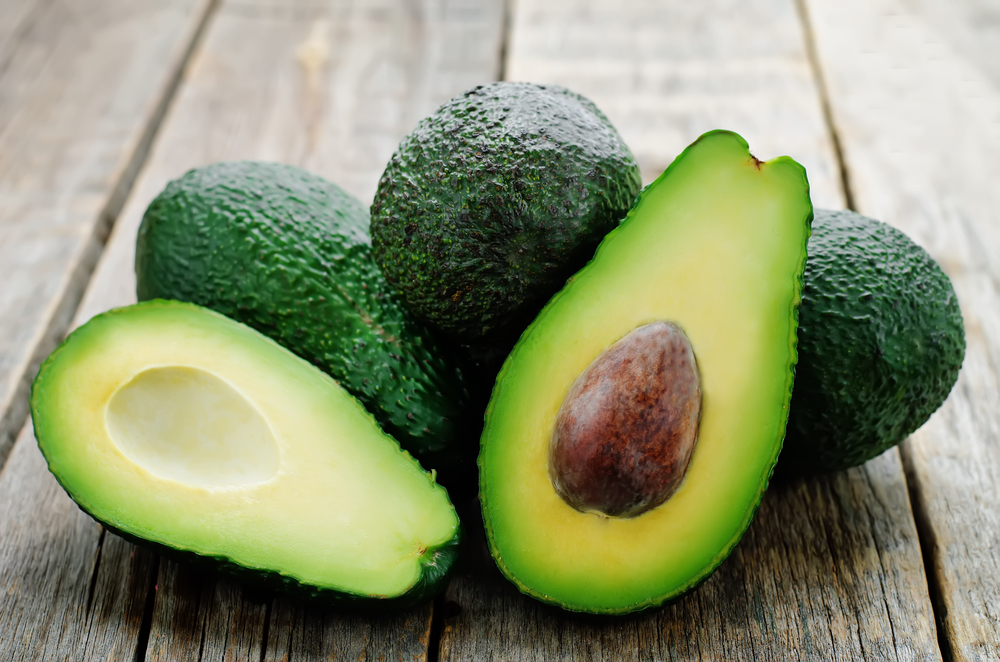
Avocados are rich in healthy fats, fiber, and essential nutrients that support digestion. The fiber in avocados helps regulate bowel movements and supports the growth of beneficial gut bacteria. Additionally, the monounsaturated fats found in avocados help to reduce inflammation in the digestive tract.
Avocados are also easy to digest, making them a great choice for individuals with sensitive stomachs. They help protect the lining of the gut, making digestion smoother and more efficient.
Flaxseeds
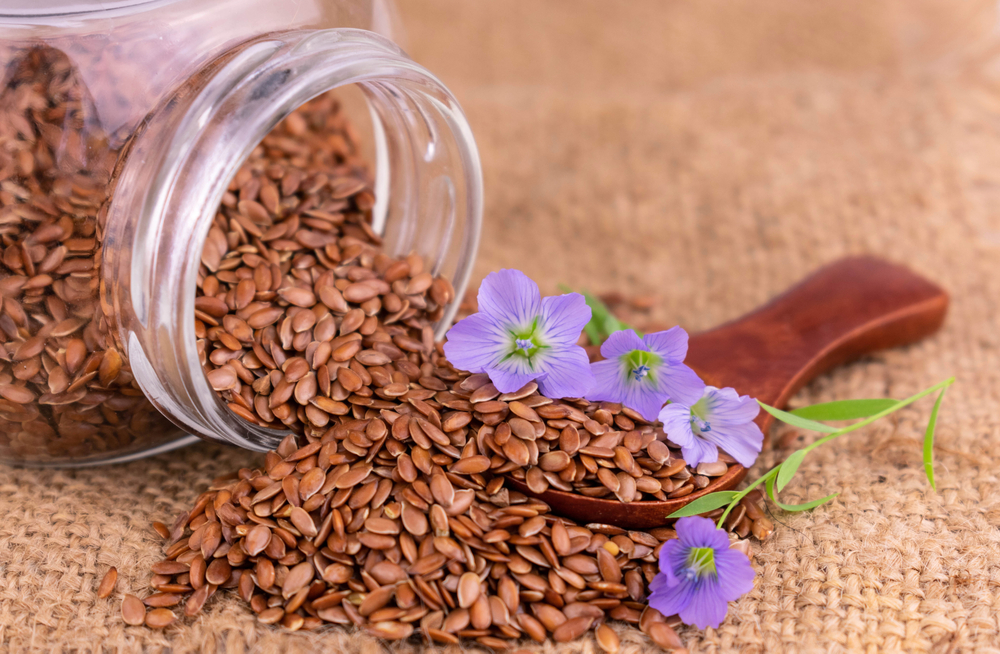
Flaxseeds are another great source of fiber, which is essential for promoting digestive health. The soluble fiber in flaxseeds helps form stool and promotes regularity, while the insoluble fiber helps prevent constipation by adding bulk to the stool. The omega-3 fatty acids in flaxseeds also reduce inflammation in the gut, supporting overall digestive function.
Flaxseeds contain lignans, which have antioxidant properties that help reduce inflammation in the digestive tract. Grinding the seeds makes them easier to digest, and they can be easily added to smoothies, yogurt, or baked goods.
Fermented Vegetables
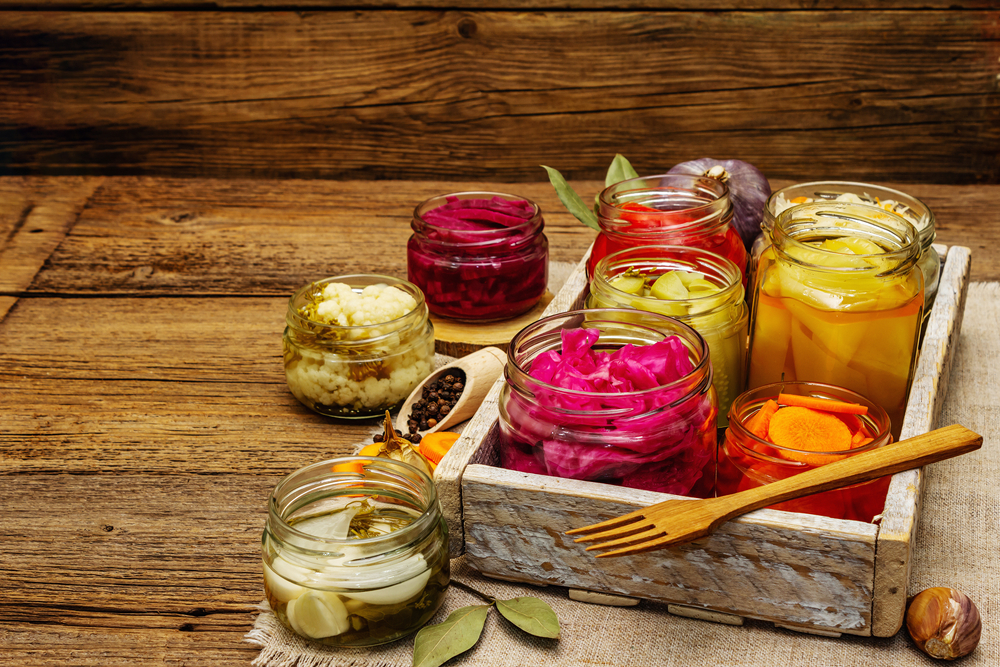
Fermented vegetables such as kimchi, sauerkraut, and pickles contain live probiotics that help maintain a healthy gut microbiome. The fermentation process enhances the bioavailability of nutrients, making them easier for your body to absorb. These probiotics support digestion by balancing gut flora and preventing the overgrowth of harmful bacteria.
The fiber content in fermented vegetables also aids in digestion by promoting regular bowel movements and supporting healthy gut motility. Regular consumption of fermented vegetables can help prevent digestive issues and support long-term gut health.
Bone Broth

Bone broth is rich in collagen and amino acids, which help support the integrity of the gut lining. It contains gelatin, which can soothe the digestive tract and reduce symptoms of leaky gut syndrome. The minerals in bone broth, such as calcium, magnesium, and phosphorus, help balance stomach acid levels and support digestive enzyme activity.
Drinking bone broth can improve digestion by promoting gut healing and reducing inflammation. It is also easy to digest and can be a soothing remedy for individuals with sensitive stomachs or digestive disorders.
Pineapple

Pineapple is packed with bromelain, an enzyme that helps break down proteins in the digestive system. This enzyme can help reduce bloating and improve digestion by speeding up the breakdown of food. Pineapple also contains fiber, which helps regulate bowel movements and supports a healthy gut microbiome.
The antioxidants in pineapple, including vitamin C, support gut health by reducing oxidative stress and inflammation. Adding fresh pineapple to your diet can aid in digestion and enhance overall gut function.
This article originally appeared on Avocadu.
